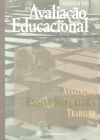Análise acerca do boicote dos estudantes aos exames de avaliação do ensino superior
DOI:
https://doi.org/10.18222/eae214520102028Keywords:
Avaliação da Educação, Ensino Superior, Enade, Comportamento, AlunosAbstract
Este estudo analisa o fenômeno popularmente denominado de boicote aos exames que compõem o sistema de avaliação do ensino superior no Brasil, dando ênfase ao Exame Nacional de Desempenho dos Estudantes (Enade). Ao fazê-lo, evidencia a magnitude do boicote ao longo do tempo, entre as instituições públicas e privadas, por tipo de boicote. Investigando o último triênio de avaliação do Enade, a análise econométrica identifica as variáveis que mais afetam a decisão do aluno ao adotar esse comportamento. Essas análises permitiram traçar um perfil do estudante que adere ao fenômeno. Como principal conclusão, o estudo aponta que o boicote, quando analisado de forma geral, não se mostra significativo, uma vez que o percentual de ocorrência nunca foi superior a 3,5%, mas quando analisado por curso a incidência desse fenômeno apresentou grandes variações. O presente artigo também revela algumas possíveis motivações para esse comportamento, entre elas a insatisfação do aluno com o curso e/ou a instituição.Downloads
Downloads
Published
How to Cite
Issue
Section
License
Authors who publish in this journal agree to the following terms:
a. Authors retain the copyright and grant the journal the right to first publication, with the paper simultaneously licensed under the Creative Commons Attribution license that allows the sharing of the paper with acknowledgment of authorship and initial publication in this journal.
b. Authors are authorized to assume additional contracts separately, for non-exclusive distribution of the version of the paper published in this journal (for example publishing in institutional repository or as a book chapter), with acknowledgment of authorship and initial publication in this journal.
c. Authors are allowed and encouraged to publish and distribute their paper on-line (for example in institutional repositories or on their personal page) at any moment before or during the editorial process, as this can generate productive changes, as well as increase the impact and citation of the published paper (See The Effect of Open Access).





